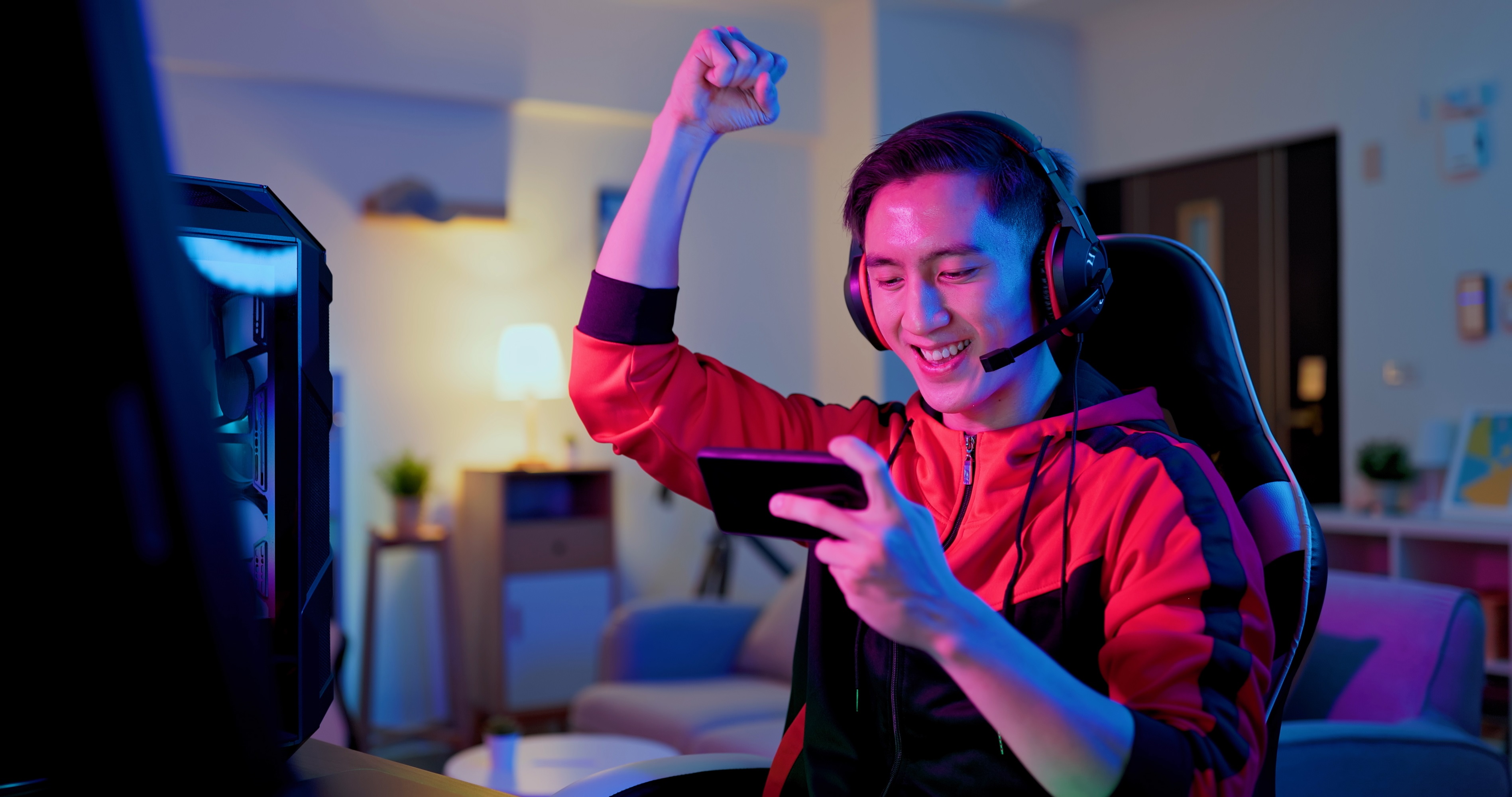
By SpinTel Author
Gamers, if you’re looking to up the ante, a move to 5G for gaming could be a winner. It’s fast becoming the new standard for gamers thanks to better connectivity and low latency, ensuring every millisecond counts. But is 5G better than NBN?
In this article, we’ll look at how 5G is revolutionising gaming in Australia and why it’s earned hero status.
Around 74 NBN 100 plans were compared before SpinTel was given the final nod.
For smooth and responsive gameplay, an internet connection with latency so low it’s barely recognisable is crucial. Enter 5G, which boasts incredibly low latency gaming, translating to almost no delay between your action and the game's response. This means that when you're on a 5G-connected device, your gaming experience will feel as immediate as if you were playing on a local network.
Using 5G for gaming, the lag reduction may sound trivial as we’re talking milliseconds, but each millisecond in the gaming world holds immense importance, particularly for the split-second decisions that determine life or death in popular games like League of Legends , COD or Fortnite.
For those in multiplayer battles or who thrive in the competitive gaming scene, the minimised lag of 5G gaming ensures a fair and equal battleground for everyone involved – rewarding strategy and skill rather than a sluggish Internet connection!
The enhanced 5G network is bolstering cloud gaming services, offering gamers freedom like never before. With this leap in technology, high-quality gaming is no longer chained to consoles or PCs, gamers are free to play wherever 5G takes them thanks to cloud gaming providers including Xbox Game Pass, GeForce Now and PlayStation Plus.
While speed might take a backseat to low latency when it comes to the live action of online gaming, it's absolutely critical when you're ready to download the latest games or update existing ones. Thanks to 5G, the wait for downloads and installations is drastically reduced, enabling a seamless transition from anticipation to gameplay.
Choosing between 5G and NBN for gaming depends on various factors, including speed and reliability. 5G offers impressive speeds, with the potential to reach up to 1Gbps in ideal conditions. However, the actual speed experienced by gamers may fluctuate depending on factors such as network congestion and location. While average speeds of around 250Mbps are common on 5G plans without data limits, these speeds can soar even higher in areas with robust 5G coverage. The allure of lightning-fast downloads might be particularly enticing for gamers during peak usage times when traditional broadband connections might struggle to maintain consistent speeds.
On the other hand, the NBN boasts steady and reliable speeds and ping times that often align closely with the rates promised by providers. Gamers in areas with reliable NBN infrastructure may find that their gaming experience is consistent and uninterrupted. While NBN speeds might not quite reach the heights of 5G, they generally provide a reliable foundation for online gaming without the variability that can accompany wireless connections.
In terms of pricing, 5G broadband has the potential to compete closely with NBN plans over time.
SpinTel offers the NBN 100 plan for $69/month, rising to just $79.95/month after the first six months, making it the most economical choice for long-term savers, while Spintel’s NBN 250 tier might appeal to avid gamers with superior speeds and the cheapest long-term rates, at $75/month initially rising to just $85.95/month – cheaper than most NBN 100 plans on the market.
If you’re considering 5G , SpinTel’s uncapped plan at speeds of up to 240Mbps is appealing at the introductory rate of $79/month for the first 3 months, then $89/month ongoing. Check 5G service coverage in your area with SpinTel’s mobile coverage checker.
5G's potential stretches far beyond faster downloads and lower latency, it can unlock a whole new world of gaming with augmented reality (AR) and virtual reality (VR). These technologies require lightning-fast processing of huge data volumes in real-time to work well, and 5G's high speeds and ultra-low latency make this possible. This means that with 5G, AR and VR devices can communicate with the internet instantaneously, creating seamless and immersive experiences.
Network performance is critical for AR and VR; even the slightest interruption can pull someone out of an immersive world, ruining the fun. With 5G, those interruptions are minimised, which is essential as these applications become more popular and demanding.
It’s clear 5G technology has become a pivotal player for gamers, offering unparalleled speed, connectivity, and responsiveness. With every millisecond crucial, 5G's minimal lag ensures a competitive edge for gamers, while its bandwidth for cloud gaming exceeds traditional constraints. While the debate between 5G and NBN for gaming persists, 5G's potential to match or exceed NBN in both performance and cost-effectiveness presents gamers with a compelling option.